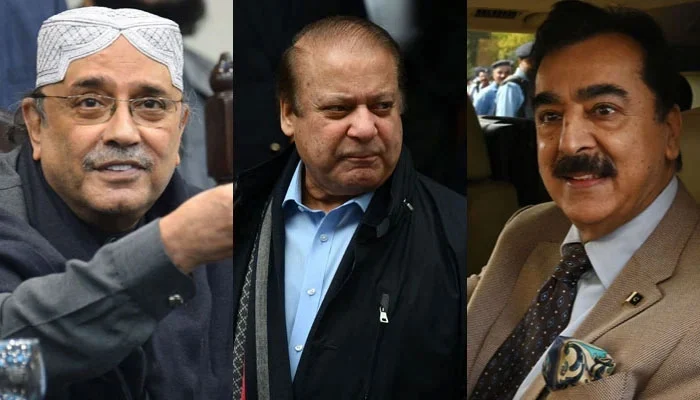- NAB writes letter to registrar of accountability court
- NAB likely to submit record of cases to court in next two days.
- Regional offices of anti-corruption watchdog compile data on cases.
ISLAMABAD: After the Supreme Court’s verdict to strike down the amendments made to the anti-graft law, the National Accountability Bureau (NAB) decided in principle to reopen corruption cases against political bigwigs, The News reported Thursday.
On September 15, a three-member bench of the apex in a majority 2-1 verdict approved Pakistan Tehreek-e-Insaf (PTI) Chairman Imran Khan’s petition challenging amendments made to the country’s accountability laws during the tenure of the previous Pakistan Democratic Movement (PDM)-led government.
The then-chief justice of Pakistan (CJP) Umar Ata Bandial-led bench ordered restoring all graft cases worth less than Rs500 million that were closed against the political leaders and public office holders and declared the amendments void.
In this regard, the anti-corruption watchdog wrote a letter to the registrar of an accountability court in the federal capital in line with the Supreme Court’s ruling.
Last week, NAB Chairman Lt-Gen (retd) Nazir Ahmed Butt summoned a consultative meeting to formulate the future course of action.
NAB is likely to submit the record of all cases to the court in the next two days for resuming hearing. The cases will be reopened against former prime ministers Nawaz Sharif, Yousuf Raza Gillani, Raja Pervez Ashraf, Shehbaz Sharif, Shahid Khaqan Abbasi, former president Asif Ali Zardari, former chief ministers of Sindh, Punjab as well as dozens of former federal and provincial ministers.
Sources said NAB was still continuing legal examination of cases that were closed earlier, and compiling records of cases that were at the stages of complaint verification, inquiries and investigations.
Regional offices of NAB in Rawalpindi, Lahore, Multan, Sukkur, Karachi, Peshawar, and Quetta are compiling complete data of cases that would be submitted to the accountability courts, said sources. “NAB will fulfil its obligation once the legal consultation is finalised in the light of the Supreme Court decision in the NAB amendments case.”
Sources said the fake accounts cases against Zardari and the rental power plants case against Ashraf have also been reopened. They added that the Toshakhana vehicles cases against Zardari, Nawaz and Gillani would also be investigated again.
Other politicians who would face cases include former chief minister Sindh Murad Ali Shah, former finance minister Miftah Ismail and former finance minister Senator Ishaq Dar for amassing assets beyond known sources of income.
NAB amendments
The NAB amendments not only reduced the four-year term of the NAB chairman and the bureau’s prosecutor general to three years but also placed all regulatory bodies functioning in the country out of NAB’s domain.
Furthermore, the changes included that a three-year term be set for the judges of the accountability courts and that courts be bound to decide a case within one year.
Challenging the amendments, Imran Khan approached the apex court and petitioned that the amendments be struck down on the grounds that they were unconstitutional.
The petition argued that amendments to sections 2, 4, 5, 6, 25 and 26 of the NAB law are against the Constitution, along with amendments made to sections 14, 15, 21 and 23.
Furthermore, the PTI chief argued that amendments in the NAB law are contrary to the fundamental rights of Articles 9, 14, 19, 24, and 25.
All these amendments made in the NAB law should be declared null and void, the PTI Chairman had requested.
To hear Khan’s plea, a special three-member bench was formed on July 15, 2022. The first hearing of the case against the NAB amendments was held on July 19 last year after Khan’s lawyer Khawaja Haris filed an application 184/3 against the NAB amendments.
Both the federation and NAB were made parties in the petition.

